COMMENT: By Kasun Ubayasiri in Brisbane
It has indeed been a few strange days for Australian news media. Apparently, monopolies are bad if they are not NewsCorp.
This week, Facebook came through on its threat to ban all news from its service, in retaliation against the Australian Federal government’s proposed new media code, that could see the tech giant paying news producers for content they willingly share on the Facebook platform.
Rupert Murdoch’s NewsCorp rather predictably ran a story accusing Facebooks’ messenger platform of aiding and abetting paedophiles. A remarkable display of mutual chestbeating.
- READ MORE: Why Google is now funnelling millions into media outlets, as Facebook pulls news for Australia
- Facebook under fire over move to ‘bully democracy’ in Australia
- Google’s and Facebook’s loud appeal to users over the news media bargaining code shows a lack of political power
- Facebook has pulled the trigger on news content — and possibly shot itself in the foot
- Facebook back at negotiating table with Australia
- Facebook move reinforces need for a News Media Bargaining Code
- JERAA demands Facebook stop blocking Australians from receiving news
But it is news media diversity and independent journalism routinely pillaged by Murdoch that will be the real victims of ScoMo trying to extort one billionaire at the behest of another.
Queensland’s independent press, for example, is just beginning to lift its head after Rupert ruthlessly destroyed a whole swathe of rural and regional newspapers of record. I wonder how this posturing between two billionaires will affect those independent newspapers that are slowly beginning to show promise in that desolate landscape.
Sure, there needs to be funding for good journalism, and the tech-giants should pitch in, but this is just the tip of the iceberg, of a rather long “to do list” to ensure a robust and independent news media that includes ensuring media diversity and the public’s access to fact-verified public interest journalism irrespective of petty party politics.
In this respect it’s hard to see this whole fiasco as anything but a half-baked idea built on a NewsCorp orchestrated lie.
Holding readers hostage
News organisations could have easily blocked Google searches listing their content. They could also have stopped putting their content on Facebook pages, explored micro-payments or some such innovative solution, instead of holding readers hostage with archaic subscription models.
Is Australian journalism suffering because of Google and Facebook? What of the media monopolies that have systematically destroyed diversity and independence of the press through concentration of ownership unparalleled in the Western world?
What of the three-decade long devaluing of journalism, and training an entire generation to get free news on vanity websites while simultaneously selling the same content in printed papers, only to then retreat behind paywalls?
What about forcing journalists to pimp their stories by linking KPIs to journalists’ capacity to secure subscriptions and assessing the value of stories on the basis of clicks?
What of the ruthless stripping of journalists’ rights that has created a precariat work force?
And what of the armies of media pundits who jumped on the Dan Gillmor bandwagon and vigorously claimed we didn’t need professional journalists because we were now all citizen journalists?
What of the media educators who have conflated journalism with media, normalised native advertising and created a grey slurry of content where fact and fiction is indistinguishable and ethics non-existent?
Championed social media
And then there are the media theorists who have championed social media as a great equaliser.
A “town square” where ideas flow freely, or as Mark Zuckerberg calls it a “digital living room” instead of seeing it for what it really is – a privately owned advertising platform hell bent on creating a global monopoly.
Let’s say we manage to force Facebook to pay for content. I wonder exactly how the dollars Zuckerberg doles out to Newscorp will flow onto the journalists and the gutted newsrooms who everyone is suddenly concerned for.
Shouldn’t the money be directly invested in public interest journalism instead of becoming just another version of that wonderfully Liberal idea of trickle-down economics filtered through Rupert’s pockets.
Dr Kasun Ubayasiri is a senior lecturer and journalism programme director at Griffith University, Queensland, Australia. An earlier version of this piece was originally a Facebook posting and this been revised and contributed to Asia Pacific Report as a column.
This post was originally published on Asia Pacific Report.

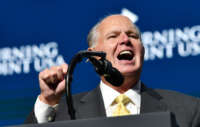
 (@Amy_Siskind)
(@Amy_Siskind) 

 Today we’re introducing
Today we’re introducing 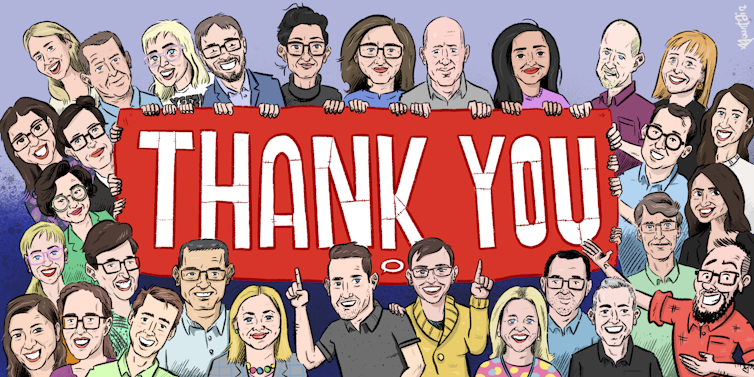
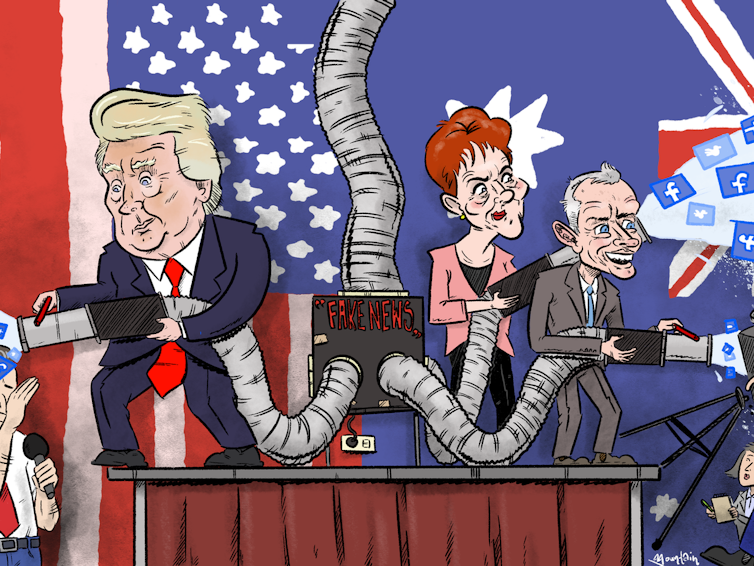
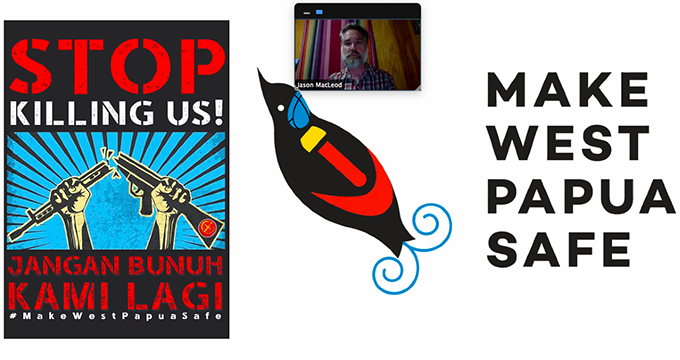
 The Make West Papua Safe logo … campaign against Indonesian militarism. Image: PMC screenshot
Yohanes Mambrasar, a West Papuan lawyer gave an illuminating description on what has been happening over human rights violence by state institutions towards indigenous people of West Papua.
“There has been increasing repression. We are seeing violent actions by the TNI (Indonesian National Armed Forces) and police against unarmed peaceful civilians who are gathering to express their political aspirations. We can really see this increasing year by year, even month by month,” said Mambrassar.
Human rights advocacy
Mambrassar who has been working on human rights advocacy said that during 2019 and 2020 “we are seeing this crackdown on protesting West Papuans.”
But they were also seeing a lot of violence towards villagers, who were suspected of supporting independence or having “separatist sympathies”, such as in Nduga, Intan Jaya, and other regions.
He said the violence was now extended to the virtual world where some people who disseminated information on social media such as Facebook and YouTube would face cyber-attacks. They were even physically attacked by the police or armed forces.
The Make West Papua Safe logo … campaign against Indonesian militarism. Image: PMC screenshot
Yohanes Mambrasar, a West Papuan lawyer gave an illuminating description on what has been happening over human rights violence by state institutions towards indigenous people of West Papua.
“There has been increasing repression. We are seeing violent actions by the TNI (Indonesian National Armed Forces) and police against unarmed peaceful civilians who are gathering to express their political aspirations. We can really see this increasing year by year, even month by month,” said Mambrassar.
Human rights advocacy
Mambrassar who has been working on human rights advocacy said that during 2019 and 2020 “we are seeing this crackdown on protesting West Papuans.”
But they were also seeing a lot of violence towards villagers, who were suspected of supporting independence or having “separatist sympathies”, such as in Nduga, Intan Jaya, and other regions.
He said the violence was now extended to the virtual world where some people who disseminated information on social media such as Facebook and YouTube would face cyber-attacks. They were even physically attacked by the police or armed forces.
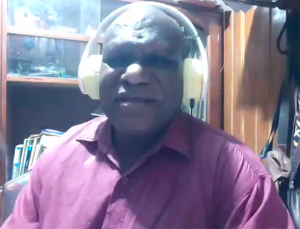 Church advocate Yones Douw … “right through until today the violence has continued.” Image: PMC screenshot
However, Yones Douw, head of the justice and peace department of KIMI church (West Papua Kemah Gospel Church), said that violence had never stopped since Indonesia had occupied West Papua.
“Really the violence has not changed since 1961 to 1969, 1969 to 2020, and 2020, when special autonomy was declared here in West Papua – right through until today the violence has continued,” said Douw.
Douw, a human rights activist, said that when special autonomy was introduced, Jakarta said that West Papuans would be 90 percent independent.
Promises ‘only words’
He said this was “only words – in fact, we have been seeing increasing violence”.
“So, if special autonomy went the way it was supposed to, West Papuan people should be protected and cared for. But that has not happened at all,” Douw said.
“Why is [the violence] increasing like this? Well, if you find a pastor who is speaking about the suffering of his congregation, he will be called a separatist. Anyone who speaks about human rights will be called as separatist, anyone who speaks about the welfare of Papuan people will be labelled as separatist,” he said.
He said that the Indonesian laws granting freedom of expression did not hold in West Papua. Even journalists, human rights activists, and some church leaders could not work without feeling a sense of fear.
“These are school students who are being shot, these are student who are walking around their own villages and without even any question they are being shot.
“Imagine what it is like if you are an older person, there is just no freedom at all to move,” said Douw.
Church advocate Yones Douw … “right through until today the violence has continued.” Image: PMC screenshot
However, Yones Douw, head of the justice and peace department of KIMI church (West Papua Kemah Gospel Church), said that violence had never stopped since Indonesia had occupied West Papua.
“Really the violence has not changed since 1961 to 1969, 1969 to 2020, and 2020, when special autonomy was declared here in West Papua – right through until today the violence has continued,” said Douw.
Douw, a human rights activist, said that when special autonomy was introduced, Jakarta said that West Papuans would be 90 percent independent.
Promises ‘only words’
He said this was “only words – in fact, we have been seeing increasing violence”.
“So, if special autonomy went the way it was supposed to, West Papuan people should be protected and cared for. But that has not happened at all,” Douw said.
“Why is [the violence] increasing like this? Well, if you find a pastor who is speaking about the suffering of his congregation, he will be called a separatist. Anyone who speaks about human rights will be called as separatist, anyone who speaks about the welfare of Papuan people will be labelled as separatist,” he said.
He said that the Indonesian laws granting freedom of expression did not hold in West Papua. Even journalists, human rights activists, and some church leaders could not work without feeling a sense of fear.
“These are school students who are being shot, these are student who are walking around their own villages and without even any question they are being shot.
“Imagine what it is like if you are an older person, there is just no freedom at all to move,” said Douw.
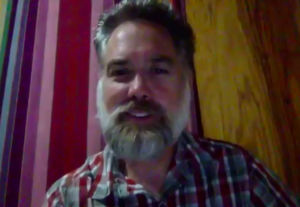 Author Jason MacLeod … responding to students’ “go to hell” message to the Australian and New Zealand governments. Image: PMC screen shot
Stopping foreign support
Jason MacLeod, co-founder of Make West Papua Safe, said he had collaborated with New Zealand activist Maire Leadbeater and Rosa Moiwend in launching this campaign.
The campaign was “to stop foreign government support for the Indonesian police and military,” said MacLeod.
He said it was a peaceful movement seeking to stop New Zealand and Australian government funding and training for the Indonesian police and military which every day brutally repressed the indigenous people of West Papua.
Brisbane-based MacLeod, who has been working on West Papua issues for the last 30 years, said the motivation behind the founding of the Make West Papua Safe campaign was in response to students speaking out in Jayapura.
Asked what they had thought about the New Zealand and Australian governments’ help for the Indonesian military, the students replied that both governments “can go to hell”, said MacLeod.
The activists, lawyers, and human rights defenders called on the people in Australia, New Zealand, United Kingdom, United States, the Pacific, Africa, Caribbean, Europe and Asia to raise their voices support of stopping military oppression in West Papua.
Contributed by a postgraduate communication studies student at Auckland University of Technology.
Author Jason MacLeod … responding to students’ “go to hell” message to the Australian and New Zealand governments. Image: PMC screen shot
Stopping foreign support
Jason MacLeod, co-founder of Make West Papua Safe, said he had collaborated with New Zealand activist Maire Leadbeater and Rosa Moiwend in launching this campaign.
The campaign was “to stop foreign government support for the Indonesian police and military,” said MacLeod.
He said it was a peaceful movement seeking to stop New Zealand and Australian government funding and training for the Indonesian police and military which every day brutally repressed the indigenous people of West Papua.
Brisbane-based MacLeod, who has been working on West Papua issues for the last 30 years, said the motivation behind the founding of the Make West Papua Safe campaign was in response to students speaking out in Jayapura.
Asked what they had thought about the New Zealand and Australian governments’ help for the Indonesian military, the students replied that both governments “can go to hell”, said MacLeod.
The activists, lawyers, and human rights defenders called on the people in Australia, New Zealand, United Kingdom, United States, the Pacific, Africa, Caribbean, Europe and Asia to raise their voices support of stopping military oppression in West Papua.
Contributed by a postgraduate communication studies student at Auckland University of Technology.